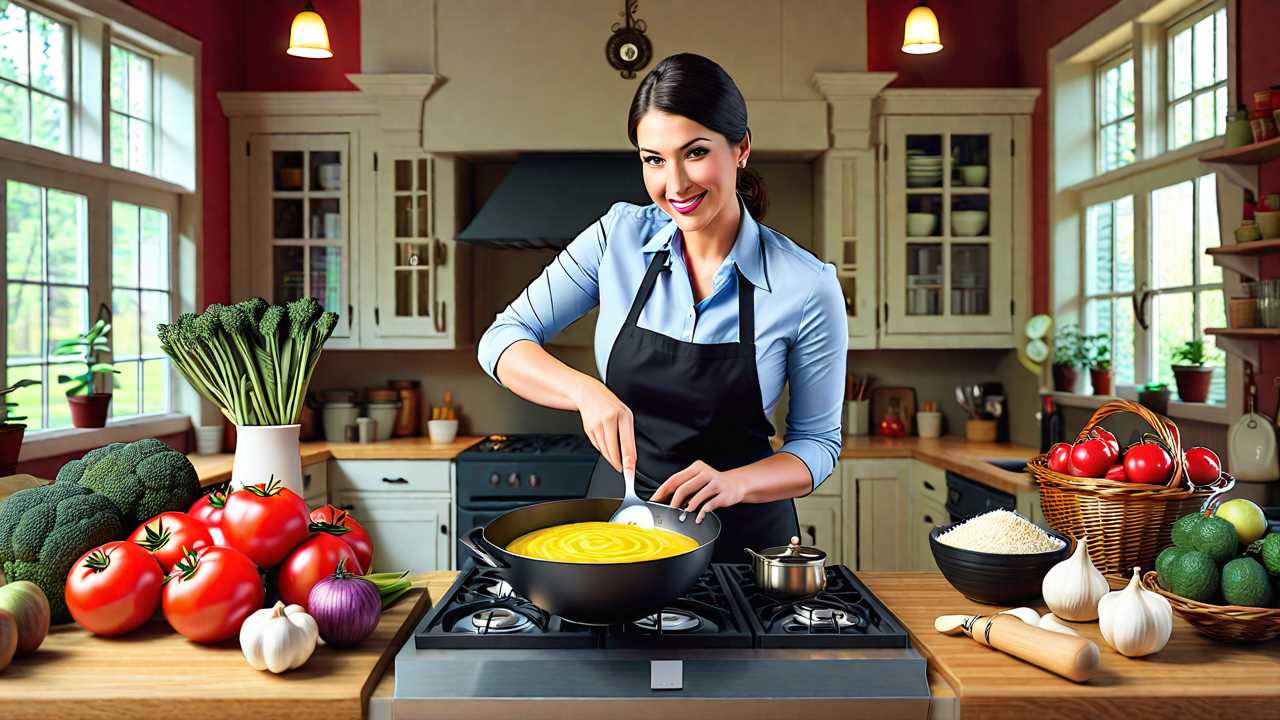Entertainment
What are the steps to hosting a successful online cooking class?
Online cooking classes are surging in popularity, providing a platform for food enthusiasts to learn from anywhere. To host a successful class, instructors

In today’s digital age, online cooking classes have become increasingly popular, allowing individuals from all over the world to acquire new culinary skills and explore diverse cuisine from the comfort of their own homes. Whether you’re a professional chef, a home cook, or someone looking to share your passion for food, hosting a successful online cooking class can be a rewarding and lucrative endeavor. In this comprehensive guide, we will walk you through the essential steps to ensure your online cooking class is a resounding success.
Establish Your Niche and Determine Your Target Audience
The first step in hosting a successful online cooking class is to identify your niche and target audience. What type of cuisine do you specialize in? Are you an expert in vegetarian or vegan cooking, baking, or international flavors? Clearly defining your area of expertise will help you attract the right students and differentiate your class from the competition.
Once you have established your niche, it’s crucial to research your target audience. Consider factors such as age, cooking experience, dietary preferences, and interests. Understanding your audience’s needs and expectations will enable you to tailor your class content, delivery, and marketing to better meet their requirements.
Develop a Comprehensive Curriculum and Engaging Lesson Plans
With your niche and target audience in mind, it’s time to develop a comprehensive curriculum for your online cooking class. This should include a detailed outline of the topics you’ll cover, the specific skills and techniques you’ll teach, and the recipes or dishes you’ll demonstrate.
Ensure that your lesson plans are engaging, informative, and tailored to the needs of your students. Incorporate a mix of theory, demonstrations, and hands-on activities to keep your students actively engaged throughout the class. Consider incorporating visual aids, such as high-quality images or videos, to enhance the learning experience.
Choose the Right Online Platform and Equipment
Selecting the appropriate online platform for your cooking class is crucial for a successful virtual instruction experience. Research and compare popular platforms such as Zoom, Webex, or Google Meet, taking into account features like video quality, screen sharing, chat functions, and the ability to record sessions.
In addition to the online platform, ensure that you have the necessary equipment to deliver a professional and engaging class. This may include a high-quality camera, a stable internet connection, good lighting, and a clean and organized kitchen setting to showcase your cooking demonstrations.
Promote Your Online Cooking Class and Build a Loyal Following
Once you have everything in place, it’s time to promote your online cooking class and build a loyal following of students. Utilize various marketing channels, such as social media, email newsletters, and your own website, to reach your target audience.
Craft compelling promotional materials, including class descriptions, class schedules, and any relevant instructor bios or testimonials. Engage with your audience on social media, share recipes, and offer exclusive content to build a sense of community and foster a connection with your students.
Deliver an Exceptional Virtual Instruction Experience
When the time comes to host your online cooking class, it’s crucial to deliver an exceptional and engaging experience for your students. Arrive early, test your equipment, and ensure that your online platform is functioning smoothly.
Throughout the class, maintain a warm and welcoming demeanor, and be attentive to your students’ needs and questions. Encourage participation, provide clear and concise instructions, and be prepared to adjust your teaching style to accommodate different learning preferences.
Remember to follow up with your students after the class, providing any necessary resources or materials, and gather feedback to continuously improve your virtual instruction experience.
Continuously Improve and Expand Your Offerings
The journey to hosting a successful online cooking class doesn’t end with a single class. Continuously seek feedback from your students, analyze class performance data, and use this information to refine your curriculum, teaching methods, and marketing strategies.
Consider expanding your class offerings by introducing new recipes, techniques, or even specialized classes based on your students’ interests and feedback. This will not only keep your existing students engaged but also attract new students to your virtual instruction platform.
By following these steps, you’ll be well on your way to hosting a successful online cooking class that delivers an exceptional learning experience, builds a loyal following, and positions you as an authority in the world of virtual instruction.

Hey there! I’m William Cooper, your go-to guy for all things travel at iMagazineDaily. I’m 39, living the dream in Oshkosh, WI, and I can’t get enough of exploring every corner of this amazing world. I’ve got this awesome gig where I blog about my travel escapades, and let me tell you, it’s never a dull moment! When I’m not busy typing away or editing some cool content, I’m out there in the city, living it up and tasting every crazy delicious thing I can find. Join me on this wild ride of adventures and stories, right here at iMagazineDaily. Trust me, it’s going to be a blast! 🌍✈️🍴






